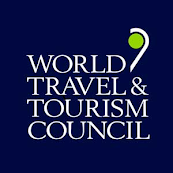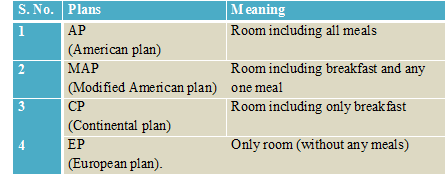- The WTTC was officially
established in 1990.
- The WTTC is
headquartered in London, UK.
- It
is a Non-profit, non-governmental.
- The World Travel
& Tourism Council (WTTC) is a forum for the travel and tourism
industry.
- It is made up of
members from the global business community and works with governments to raise
awareness about the travel and tourism industry.
- It is known for being
the only forum to represent the private sector in all parts of the industry
worldwide.
- Its activities include
research on the economic and social impact of the industry and its
organisation of global and regional summits focused on issues and developments
relevant to the industry.
- WTTC began in the 1980s
with a group of business executives led by former American
Express CEO James D. Robinson III.
- The group was formed to
discuss the travel and tourism industry and the need for more data relating to
the importance of what some believed was a non-essential industry.
- Discussions led to the
first meeting of the WTTC in Paris, France in 1989.
- The first meeting
included a speech by former United States Secretary of State Henry Kissinger who suggested that the travel and tourism industry was not
widely recognized due to its not having any organisation or structure.
- The WTTC was officially
established in 1990.
- The first annual
general meeting took place in Washington, DC, in 1991, at which time the
council was composed of 32 members.
- These initial members
agreed on the need for a common effort to promote awareness of the economic
contribution made by the travel and tourism industry.
- The founding members
provided investment and support to produce economic data that could
demonstrate the importance of the industry.
- They shared an interest
in ensuring greater interest from governments and policy-makers in order to
ensure the success of travel and tourism.
- It began releasing
tourism impact information around 1993 working with Wharton Econometric
Forecasting Associates to develop the data.
- WTTC formed a group
known as the Tourism Satellite Account (TSA) to compile and release the
data.
- TSA was recognized by
the United Nations Statistical Commission in 1999.
- During the 1990s, the
WTTC expanded the activities of the council to include education and training,
air transport liberalisation, taxation, and sustainable development.
- The new activities led
to the creation of the World Travel & Tourism Human Resources Centre in
Vancouver and the World Travel & Tourism Taxation Policy Centre in the
United States.
- In 1997, the WTTC
organised the first Global Travel and Tourism Summit in Vilamoura, Portugal.
- Membership in the
organisation reached 100 the same year.
- In 2013, the WTTC
created the Hotel Carbon Measurement Initiative(HCMI) in partnership with the InternationalTourism Partnership.
- The staffs are led by the president and CEO of WTTC.
- Seven directors head the different sections of the organisation.
- WTTC members are the chief executives, presidents, or chairs of companies from different sectors and regions within the travel and tourism industry.
- Its members include over 200 CEOs, Chairpersons and presidents of the world’s leading Tourism companies from across the world from different segments of tourism such as hotel, cruise, car rental, cruise operator, travel agent.
- The members make about 30 percent of the total turnover in the industry.
- It also has a category for companies that provide services to the industry, referred to as Industry Partnership.

Associate Membership will include:
- Opportunity to attend the
annual Global Summit (as the most important Travel & Tourism event of
the year, the Global Summit is invitation only).
- Participate in a special
Associate track at the annual Global Summit to enable networking and maximizing business opportunities.
- Participation in the
forthcoming online Associate Member Community.
- Access to WTTC’s globally
respected research, including the annual Economic Impact Reports which
include data of 185 countries.
- Access to WTTC
thought-leadership reports and policy papers including best practices for
decision-making on topics including sustainability and climate and
environment action.
- Entry to WTTC’s regional
Travel & Tourism events.
- Access to online content including
interviews of high profile leaders.
- SME membership costs $4,000 per year; an early-bird,
$3,500 fee is being offered to members who sign up before 2020.
Destination Partner category: the newest member classification -
amplifies the voice of major national tourism organisations and destination
management organisations from across the globe, and will serve to tackle issues
within the tourism sector such as overcrowding and crisis preparedness.
Current and past presidents
|
Year |
President |
|
1990 - 2001 |
Geoffrey
Lipman |
|
2001
- 2010 |
Jean-Claude Baumgarten |
|
2010
- 2017 |
David P. Scowsill |
|
2017 - present |
Gloria Guevara Manzo |
ACTIVITIES OF WTTC
a.
Research:
· The WTTC performs and publishes research
in conjunction with Oxford Economics on the economic and social
impact of the travel and tourism industry.
· The foundation of the WTTC's research
activity is a set of annually produced Travel & Tourism Economic Impact
Reports.
· These include a global report as well as
24 regional and 184 country reports.
· The reports calculate the economic impact
of the industry including the direct and total GDP impacts, direct and indirect
employment, investment, and exports.
· Using models based on Tourism Satellite
Accounting, the council reports one year and ten year forecasts for these
impacts.
· This research is used by major
publications including Forbes and Bloomberg News.
· It also supplies country indicators
for the Travel and Tourism Competitiveness Report, a report published by
the World Economic Forum that ranks selected nations according to the
Travel and Tourism Competitiveness Index.
b.
Summits:
· The WTTC organises a global summit
each year, usually held in April, with a regional summit held sometime in the
third quarter, with up to 1,000 individuals attending each year with invitation-only.
c.
Awards:
· International jury of experts mainly from
WTTC found in 1993, the annual World Travel Awards.
· In 2004 the WTTC took over the Tourism for
Tomorrow Awards.
· These awards were initially created by the
Federation of Tour Operators in 1989 and taken over by British Airways in 1992.
· The Tourism for Tomorrow Awards are
awarded in several categories to encourage and acknowledge developments in
sustainable tourism.
Source: WTTC







0 Comments